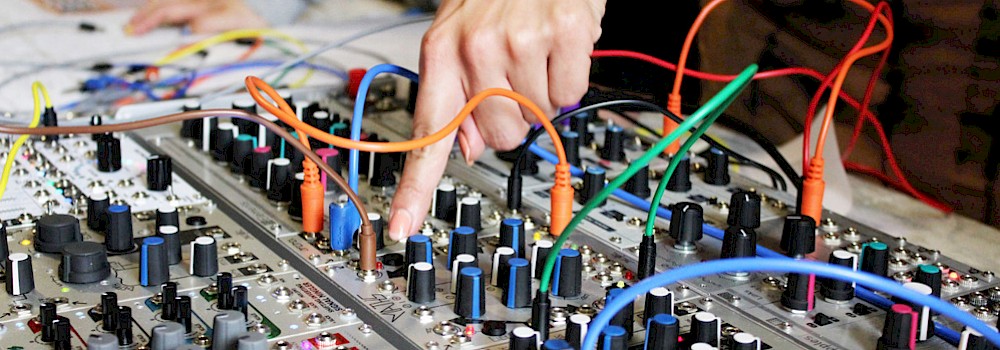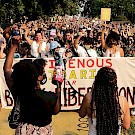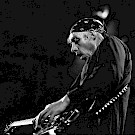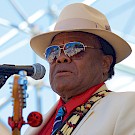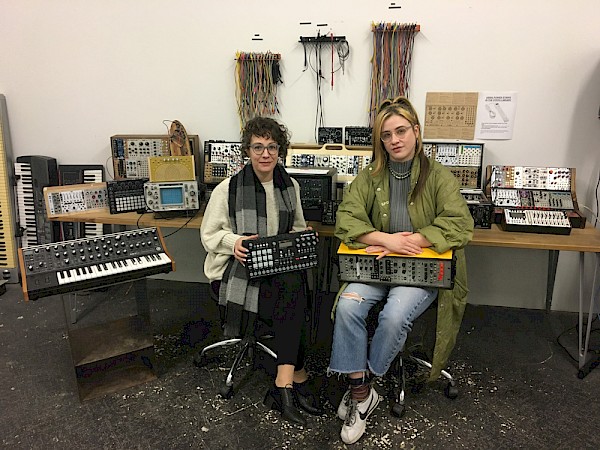 Teacher, artist and Synth Library co-founder Alissa DeRubeis and S1 co-founder Felisha Ledesma with said library, which provides S1 members of all experience levels with hands-on access to modular synthesizers, DJ gear, recording equipment and other electronic instrumentsIn years past, people in Portland attended shows in the city’s most alternative, underground venues—otherwise known as houses. In these houses, artists and musicians created sounds and experiences no one had ever heard before—wild, experimental, unpredictable. Whether it was good or bad didn’t matter. Whether it made money or got publicized was beyond their concern. These performers and participants wanted to experience one fleeting feeling: free and honest expression.
Teacher, artist and Synth Library co-founder Alissa DeRubeis and S1 co-founder Felisha Ledesma with said library, which provides S1 members of all experience levels with hands-on access to modular synthesizers, DJ gear, recording equipment and other electronic instrumentsIn years past, people in Portland attended shows in the city’s most alternative, underground venues—otherwise known as houses. In these houses, artists and musicians created sounds and experiences no one had ever heard before—wild, experimental, unpredictable. Whether it was good or bad didn’t matter. Whether it made money or got publicized was beyond their concern. These performers and participants wanted to experience one fleeting feeling: free and honest expression.
Now, in an age of rising rents and increasing density, those shows can be harder to find as the spaces go extinct.
Well, not entirely.
Enter S1, a nonprofit, artist-run project space and performance venue on Sandy Boulevard in NE Portland. Operated entirely by volunteers, S1 is carried by one guiding mission: an unyielding commitment to supporting, cultivating and actualizing the visions of Portland’s most imaginative artists, and giving them the venue to perform their most experimental work.
Or, as volunteer, poet and multimedia artist Jamondria Harris puts it: “We give artists the space to shatter genres.”
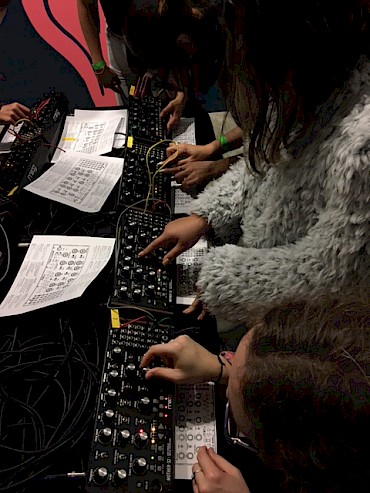 A Moog workshop at S1S1 officially started in 2014 in a basement, ironically, beneath the Rite Aid in the Hollywood District under the guidance of Felisha Ledesma, Erik Carlson and Alex Ian Smith. They wanted to showcase the city’s up-and-coming, yet underrepresented musicians, whose work might not be featured at more traditional venues. They elevated and promoted these artists by regularly hosting shows that were open to the public, as well as offered classes, workshops and resources, all for as little money as possible.
A Moog workshop at S1S1 officially started in 2014 in a basement, ironically, beneath the Rite Aid in the Hollywood District under the guidance of Felisha Ledesma, Erik Carlson and Alex Ian Smith. They wanted to showcase the city’s up-and-coming, yet underrepresented musicians, whose work might not be featured at more traditional venues. They elevated and promoted these artists by regularly hosting shows that were open to the public, as well as offered classes, workshops and resources, all for as little money as possible.
Today, S1 has grown beyond both the basement and its three founders. That original mission, however, goes unchanged. “This is the space for people to fulfill visions,” says Kevin Holden, a volunteer and former artist-in-residence. “We ask artists, ‘What do you want to do?’ And then we ask, ‘How can we make that happen?’”
At S1, that can happen in many ways. It happens during classes that range from beginner synthesizer lessons, to advanced mixing, to more specialized workshops (like creating textiles with embedded circuits, building synthesizers from scratch, or composing a score entirely from visual elements). It happens by upholding a safe, inclusive space that openly welcomes the voices and views of Portland’s most marginalized artists (like people of color, indigenous folks and the LGBTQ+ community, to name a few). It happens by throwing affordable, accessible events, which are often all ages and with covers based on a sliding scale, to help artists gain exposure to as wide a crowd as possible.
And most especially, it happens by offering all the tools, hardware and communal support the team can muster—including the Synth Library, a room full of synthesizers available to members for very modest prices—for all artists to manifest their ideas into reality.
Venues, by their very nature, can shut the door on certain types of music—namely, if it isn’t easily identifiable or marketable to a larger audience. You can’t necessarily blame the owner—it’s risky to book music that’s completely foreign to your typical crowd.
“When you drive your oscillators into self-ringing noises, the bartender is not gonna look at you and say, ‘Thanks,’” volunteer and hip-hop artist Daniel M. Landolt-Hoene describes. But as a result, some artists can struggle to find themselves without an outlet for their work—or worse, they may modify or temper their sound in order to fit a more “acceptable” aesthetic.
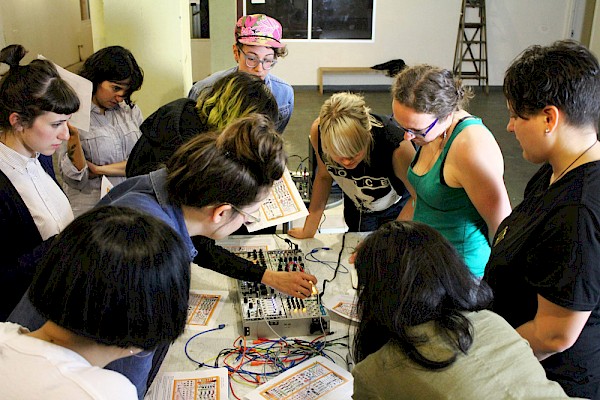 A Synth Library workshop at S1Instead of aiming to please the audience, S1 wants to satiate the artist. And the more eccentric the performance, the better. “Experimental sound is about transcending genre,” Harris says. “It’s fluid, in your approach to sound. And this is a space for fluidity.”
A Synth Library workshop at S1Instead of aiming to please the audience, S1 wants to satiate the artist. And the more eccentric the performance, the better. “Experimental sound is about transcending genre,” Harris says. “It’s fluid, in your approach to sound. And this is a space for fluidity.”
That’s why, for any given show, you can walk into S1’s doors and expect to see anything. Perhaps it’ll be an internationally recognized experimental musician. (Sarah Davachi, Russell E.L. Butler, and Grouper’s Liz Harris have performed before.) It may be a touch-engaged sound space, or a performance with folks bouncing light and sound waves off mirrors. Or it may just be someone who wants to fill the room with fog and blast droney noise for an hour.
Regardless of who’s performing, there’s a good chance you’ve never seen anything like it before, nor will you ever see it again. It’ll be hard to describe, and nearly impossible to categorize. And that’s perfect. It’s exactly as S1 would have it.

